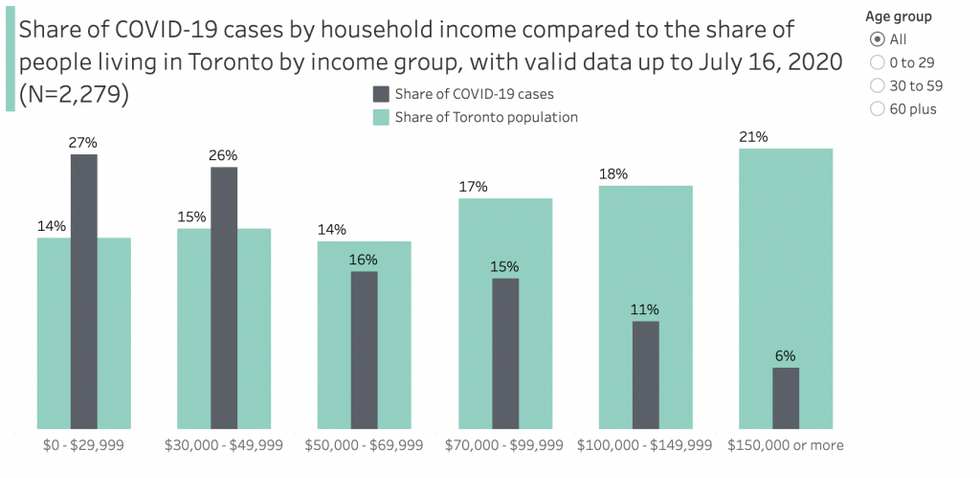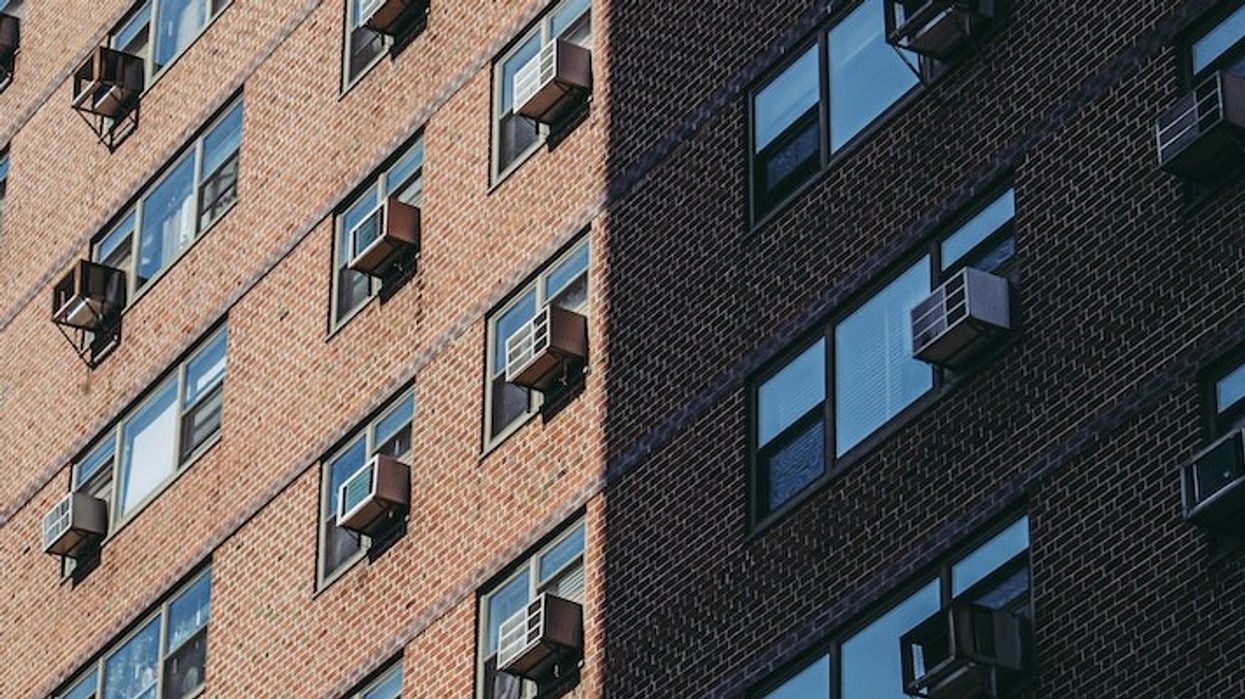When it comes to developing COVID-19, new data from Toronto Public Health suggests that race and income can play a factor.
Given Toronto's racial diversity, large number of newcomers, and the high proportion of people living with lower-income, Toronto Public Health (TPH) began researching whether or not local residents were also unfairly affected by COVID-19.
Today, TPH released the findings and trends from the recently collected individual-level COVID-19 case data on reported ethno racial identity, household income, and household size.
READ: Everything You Need to Know About Toronto Entering Stage 3
“While COVID-19 has affected all of us, unfortunately, it has had a greater impact on those in our community who face greater health inequities, said Dr. Eileen de Villa, Medical Officer of Health.
"As we continue to expand our understanding of this virus and how it has impacted our residents, the pandemic has also highlighted existing issues related to the social determinants of health that need to be better addressed. I look forward to working with our health system, community and government partners on actions to keep all of our residents as healthy as possible.”
The latest data, which was captured from May 20 to July 16, shows that 83% of people with reported COVID-19 cases identified with a racialized group. What's more, 51% of reported cases in Toronto were living in households that could be considered lower-income (less than $50,000 per year), while 27% of COVID-19 cases were among individuals who live in households with five or more people.

According to the latest data, those who make $29,999 and under accounted for 27% of all cases, while comprising just 14% of the population. This was followed by those who make between $30,000 and $49,999 representing 26% of all reported COVID cases in Toronto, despite making up 15% of the overall population.
Meanwhile, those who make $150,000 – 21% of Toronto's population – accounted for only 6% of the city's COVID cases.
“The data that has been collected and presented by Toronto Public Health will help us in our response to the COVID-19 pandemic by allowing us to help specific neighbourhoods that we know are being more severely impacted by COVID-19," said Mayor John Tory.
"Learning more about the impacts COVID-19 is having on our residents will not only allow us to respond in the interim, but in the long-term we can develop better services, programs and policies that address these findings and future challenge we may face.”
According to the City, the reasons racialized populations and low income groups are more at risk of COVID-19 "are unclear but could include":
- Existing health disparities linked to social and economic factors
- Stress caused by racism and other forms of discrimination
- Challenges in participating in the public health response to COVID-19, including
- difficulties in limiting COVID-19 exposure because of being an essential worker, and
- difficulties in physical distancing because of overcrowding
- Inequitable access to health care and social services
As of today, July 30, Toronto has had 15,377 confirmed cases, with 13,772 of those deemed recovered, while 1,150 people in Toronto have died from COVID-19.





















